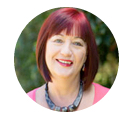Depression is now one of the most common mental health issues experienced by people throughout the Western world. Current rates indicate that in most countries throughout the world, 8-12% of people experience depression at some point throughout their lifetime.
If you’ve ever experienced depression yourself, you probably know how it can significantly impact your ability to function at your best, make good decisions and have happy relationships.
So we asked 8 expert therapists and counsellors from Australia Counselling Directory for their best tips on how to deal with depression.
These therapists are often recommending these strategies to their clients to help them to deal with depression. The benefits include improving your motivation and energy levels, reconnecting with your passion and zest for life, and becoming more productive and motivated so you can achieve your life goals.
Here’s what our expert therapists had to share when it comes to beating depression once and for all.
 Frances Taylor
Frances Taylor
Identifying your feelings of depression is a wonderful start. Many people are unable to do this and just don’t know that what they are feeling is depressed. If you know what you are dealing with, that’s half the battle over. Knowledge is power and now you can go about finding ways to productively deal with it. There are many forms of depression and one of the most common is “reactive depression” when a life event pre-empts depression such as grief and loss. Good friends can be invaluable through such times.
Think about having a check up with your doctor. It is a good idea to seek medical advice to make sure that you are covering all bases by checking your physical health as well as your mental health. Many physical ailments can be responsible for affecting medical health and vice versa. Talk with your doctor also about seeing a counsellor and what options are available. It is important not to feel alone and it is important to stay safe. A problem shared may be a problem halved. If your feelings at any time entertain the idea of self-harm, you can reach out for help by calling Beyond Blue on 1300 224 636 or Lifeline on 13 11 14.
Get outdoors into some fresh air and move your body. Depression can cause isolation and often make the depressed person feel apathetic and tired. Even a short walk around the block can increase some happy hormones and lead to better feelings of wellbeing. Small steps to create change are vital and even just pottering around in the garden can be beneficial to your state. Similarly, it is important to remember to eat and drink healthy fresh food options. Anything to improve energy and promote change is so much better than being stuck in a blue funk. Many people of all ages can feel depressed in their lifetime and with professional assistance it is possible to overcome depression.
Find out more about Brisbane counsellor Frances Taylor at www.goodcounselling.com.au
 Brad McLean
Brad McLean
Steer clear of alcohol. We know it’s a central nervous system depressant and we know it adversely affects our mood and sleep.
Put words to your feelings. Research backs the use of journalling and it is a highly effective and inexpensive form of self-help that works. Externalising thoughts and feelings helps to put them in perspective, to discover themes and patterns. The process itself is beneficial in that it is a form of focused, purposeful engagement and ritual.
Use mycompass.org.au . A Black Dog Institute initiative, MyCompass offers a host of tools (and App) for tracking mood, doing CBT-based online modules focused on wellbeing, a diary and stories from other people. Again, evidence-based and something I recommend to all my clients (even those that are not necessary clinically depressed).
Find out more about Sydney counsellor and psychotherapist Brad McLean at www.bradmclean.com.au
 Dr Kate Lemerle
Dr Kate Lemerle
Many people still consider depression from the “medical model” perspective – they believe it’s a chemical imbalance in the brain. Evidence from recent decades has debunked this myth, and we now understand depression as the consequence of faulty thinking habits that change neural pathways between the “emotional brain” and the “thinking brain”. This change disrupts normal electrical, chemical and structural processes throughout the nervous system. The good news is, depression is highly treatable – and preventable – with some easy daily activities:
Do something kind for another person every day. By looking for opportunities to help others, you shift attention away from yourself and connect with others. Your brain also responds positively when other people show gratitude – their mirror neurones activate yours so you have the same emotion.
Identify and use your “signature strengths” proactively. Using your personal resources in a more targeted way allows you to accomplish tasks easily. Spend time each day writing about what went well and why.
Make sure you laugh and play every day. Being grown-up is meant to be serious business, but as adults we forget the joy that comes from playing, being imaginative, satisfying curiosity, and noticing the funny things around us.
Find out more about Springfield, QLD psychologist Dr Kate Lemerle at www.appliedpospsych.com
Andrea Szasz
Depression needs to be treated seriously. Seeking professional help is highly recommended especially if you have tried many methods and medications before. There might be underlying trauma that it is time to address. Whilst it does feel impossible sometimes, there are also a few things you can do to feel better.
Any activity that energises you will be of benefit. Because depression affects not just our mental health but how we feel in our body, it’s essential that you remain activate, even when you don’t feel the desire to get moving. Try to go outside, go for a walk, jog or swim. Catch the sunshine on your skin and absorb the warmth and vitamin D.
Our basic human need is connection. Depression is often called the disease of disconnection. Try to cultivate connection in your life, even if you just start with going to a coffee shop to be around other people. Listen to laughter; gently make eye contact with others. If you can, join a group for exercise, learning or other activities.
Pay attention to your positive feelings, thoughts, sensations. Our brain has a negativity bias; we are wired to notice negative signals more than positive. However, you can rewire your brain by focusing and staying a little longer on the good feelings, sensations, and thoughts.
Find out more about Sydney counsellor and psychotherapist Andrea Szasz at www.bravetherapy.com
 Tim Hill
Tim Hill
Get better informed about depression. It would be great if people in your life understood depression and were able to support you in a helpful way. Perhaps the first step towards this is you recommending some reading to them. The Black Dog Institute and Beyond Blue have some good factual resources to explain about the effects of depression and what you can do.
Get clear – this isn’t your fault. Depression isn’t a moral failing, a lack of willpower or laziness – it’s an inability to do the things that other people do. These things become impossible because you’re depressed. Like anything that’s beyond your powers to fix, get some professional help – it can make all the difference.
A common misconception about depression is that its opposite is happiness. More usefully, the opposite of depression is ‘being functional’. One of the obstacles to treating depression is that people can find it hard to find anything to be happy about, so they then fear they won’t ever stop being depressed. Rather than happiness, focus instead on doing what you can to be more functional. This has its own rewards.
Find out more about Melbourne counsellor and psychotherapist Tim Hill at www.timhillpsychotherapy.com
Howard Todd-Collins
Get moving! The boost of serotonin, endorphins and other good brain chemicals happens big time when the body is physically moving. It doesn’t have to be a full on work out at the gym, it can be a brisk walk with the dog, a stroll on the beach, a relaxing bike ride through the park or a walk to the shops. Physical exercise acts in similar ways to anti-depressant medication in that it changes your mood.
Eat well. It can be difficult not to launch into some chocolate or chips when we are struggling, it’s so easy to do. Alternatively not eating at all deprives the body of vital nutrients. There is a strong link between emotions and food cravings and it may be worth consulting a dietician or nutritionist to better understand this. However, eating small well-balanced meals throughout the day can stabilise moods.
Resist retreating. Give yourself permission for some social contact of your choosing with family or friends. Accepting support from people who care is a sign of strength and is a vital step to get through the tough times.
Find out more about Melbourne counsellor and psychotherapist Howard Todd-Collins at www.menandrelationships.com.au
 Helen Larkey
Helen Larkey
Exercise on a regular basis. Move your body even though you may not feel like it or even feel like getting out of bed. Research has shown time and again the benefits of exercise to improve mood and help to overcome depression. Start slowly – maybe 10 -15 minutes- and try to get some sun light in the morning without sunglasses. This will also help you sleep if you’re having sleep problems.
Eat a good diet. Lack of adequate vitamins, protein and minerals can contribute to the onset of depression. Try to eat foods in their natural state and avoid empty calories in simple carbohydrates found in fast foods. See a nutritionist to advise you of what to eat. Magnesium is the ultimate muscle relaxer if you are feeling stressed. Avoid too much alcohol as it can increase depression.
Stay Connected. Contact a trusted friend or relative when you are feeling down and share what you are going through even though this may be difficult for you. Reaching out to someone is not a sign of weakness; isolation and loneliness actually make depression worse. Phone a helpline if you need someone to talk to. Join a support group for people suffering with depression so you know you are not alone.
Find out more about Byron Bay counsellor Helen Larkey at www.helenlarkey.com
Colouring-in generates wellness, peace and enhances the fine motor skills in your brain. The recent trend towards producing colouring books specifically designed for adults has produced a proliferation of wonderful books to choose from. My personal favourite is The Secret Garden: An Inky Treasure Hunt and Coloring Book.
Walk regularly to step out of your mind and exercise to release the negative energy in your body. Nature is a natural soother and ‘pick-me-up’ to an irritated nervous system. If you live close to the ocean, a river, a forest setting or some other reserve, take the time each day to do a 30 minute walk and notice how your body and mind responds.
Use play to relax and be in the present moment. Your inner child is an intuitive, accessible source of healing, full of creativity, imagination and fun. Take the time to play with your children, hang out with your grandchild, spend time with your niece/nephew and notice the things that make them laugh. Play with your dog or cat or do something ‘silly’ just for the sheer pleasure. You will feel uplifted and energised in those moments.
Find out more about Geelong, VIC counsellor Colleen Morris at www.watersedgecounselling.com
Want to learn more about depression? Check out all our articles on depression here.












